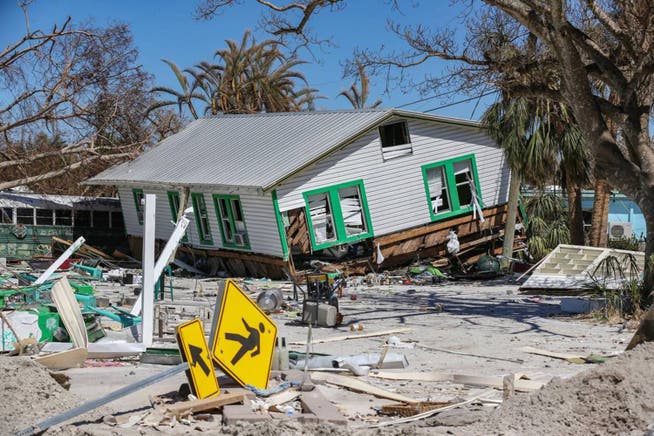Biontech wants to take over British start-up
The purchase of the start-up would be the largest takeover in the history of the Mainz-based pharmaceutical company.
kca./(dpa)
The German pharmaceutical company Biontech wants to take over a British start-up specializing in artificial intelligence. With a planned upfront payment of around 362 million pounds in cash and Biontech shares, the takeover of “InstaDeep” would be the largest in the company’s history to date, as the Mainz-based company announced on Tuesday. The intended takeover will add around 240 employees to the workforce and open up access to a global network of research partners in the fields of artificial intelligence, machine learning and data science.
After the takeover, “InstaDeep” will operate worldwide as a Biontech subsidiary and will remain based in London. According to the company, it was founded in 2014 and has branches in Paris, Tunis, Lagos, Dubai and Cape Town. Biontech already holds “InstaDeep” shares. In addition to the £362m, InstaDeep shareholders will receive up to £200m in performance-related payments.
Biontech is aiming to close the deal by the end of March, as CEO Ugur Sahin announced. The planned takeover underscores the increasing importance of Great Britain for Biontech. Only a few days ago it became known that Biontech wants to set up a research and development center for cancer therapy there. The aim is to treat up to 10,000 patients with personalized cancer immunotherapies by 2030.
World Bank warns of risk of global recession
(dpa) High inflation, rising interest rates and the Russian war of aggression against Ukraine are slowing down global economic growth drastically and in the long term. The World Bank lowered its global growth forecast for this year to 1.7 percent on Tuesday and warned of a possible recession.
“The world economy is on a knife’s edge,” said forecast chief Ayhan Kose of the German Press Agency in Washington. It is the lowest growth rate outside of a global recession in the past three decades. In practically all regions, per capita income will grow more slowly than before the corona pandemic, according to the Global Economic Prospects report.
World Bank President David Malpass warned that this would hit developing countries particularly hard. “There is a devastating disconnect between the regions that need large amounts of new investment to support growing populations and actual investment flows.” Further negative shocks could plunge the global economy into another recession, it has been warned.
“If we have another global recession, because we just had one in 2020, then that will be historic,” Kose said. It would be the first time since the 1930s that the world economy would experience two recessions in the same decade. The risk is definitely there – even if a recession is not the World Bank’s baseline scenario at the moment: “If it comes to that, I think it will be quite expensive.”
The biggest challenge remains the high inflation. The global inflation rate is likely to weaken, but will remain above pre-pandemic levels, the forecast says. Central banks would need to continue raising interest rates or keeping them high to ensure price stability, the World Bank said.
Last June, the World Bank was still assuming global economic growth of 3 percent for 2023 – so this is a downward correction of 1.3 percentage points. In the industrialized countries, the economy is likely to grow by 0.5 percent on average – 1.7 percentage points less than previously forecast. No growth at all is now expected for the euro zone in 2023 – a downward correction of 1.9 percentage points.
Hackers steal data from former Zurich customers in Japan
amused
The insurance group Zurich has become the victim of a data theft in Japan. Cyber criminals have apparently been able to steal personal data from more than 750,000 former Zurich customers in Japan who had taken out car insurance with the Swiss group. Among other things, data with the names, e-mail addresses or policy numbers of the previous customers were stolen.
As a spokesman for the insurer told the AWP news agency on Tuesday, the cause of the data leak lies with an external service provider; one is in the process of informing the affected customers. According to the current state of knowledge, customers from other countries should not be affected.
SIX stock exchange boss announces departure at the end of January
no. The SIX stock exchange director Thomas Zeeb will surprisingly resign at the end of January. As SIX announced on Tuesday, Zeeb is leaving the company after 14 years to pursue a new challenge.
SIX has built up its digital exchange SDX under Zeeb in recent years. The takeover of the Spanish stock exchange two years ago also happened under his direction. The search for a successor has already begun, the company said. On an interim basis, Christoph Landis will be in charge of the area. Landis has been with SIX since 1992 and is currently Head of IT. Between 2015 and 2018 he had already headed the stock exchange division.
Interest rates on Swiss savings accounts continue to rise

The higher interest rates are slowly reaching savers.
no. The SNB has heralded the end of negative interest rates – a step that is increasingly making itself felt in the accounts of Swiss savers. According to a study by the Moneyland comparison service published on Tuesday, adults with a savings account are currently receiving a base interest rate of up to 0.65 percent.
The conditions are very different across all banks. The unweighted average is 0.19 percent in January — more than four times the figure a year ago when the average was 0.04 percent. At a total of ten banks, customers receive at least half a percent base rate.
However, Moneyland advises taking a closer look at the bank’s conditions. Especially for bank accounts with particularly good interest rates, there are often stricter withdrawal conditions and restrictions. Of the five largest Swiss banks, the Zürcher Kantonalbank is the most generous at 0.5 percent. At UBS, on the other hand, there is still no interest, and Credit Suisse (0.01 percent) and Raiffeisen (0.1 percent) only offer below-average interest rates. At Postfinance, savers receive 0.4 percent.
Munich Re expects losses from natural catastrophes in excess of 100 billion dollars in the future

Hurricane Ian caused insured losses of $60 billion.
nel./(Bloomberg) Extreme weather has led to insured losses of more than 100 billion euros worldwide for the second year in a row. In industry data published on Tuesday, the reinsurer Munich Re assumes that the industry will have to get used to this high level.
According to this, insured losses from natural catastrophes in 2022 totaled 120 billion dollars (110 billion francs), of which around 90 percent were weather-related. Earthquakes, for example, accounted for the rest. The company put the total damage, including non-insured incidents, at $270 billion.
By far the costliest natural catastrophe was Hurricane Ian, with insured losses of $60 billion. The tropical cyclone hit Florida in September with wind speeds of almost 250 kilometers per hour. South East Australia floods in February and March were the second costliest natural catastrophe for insurers at $4 billion.
Before 2005, when Hurricane Katrina raged in the US, insured natural catastrophe losses, adjusted for inflation, never exceeded $50 billion a year, according to Munich Re records. “It cannot be denied that climate change is driving the natural catastrophe balance sheet,” said Ernst Rauch, chief climatologist at Munich Re. “Insured losses of more than $100 billion a year are the new normal.”
Rauch also observes large jumps in the amount of damage from individual events. Old highs are often not exceeded by 20 or 30 percent, but by a factor of 2, 3 or 4. The “new normal” will probably result in insurers adjusting their prices or product design. “We want to further expand our reinsurance business in the area of natural catastrophes,” says Rauch. “The prerequisite for this, however, is that we can enforce appropriate premiums on the market.”
